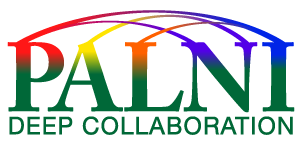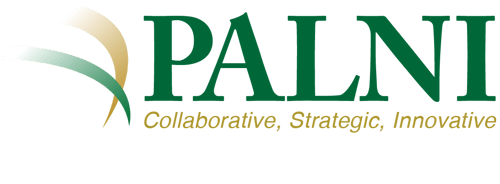Commitment to Deep Collaboration

Adopted by the PALNI Board
February 23, 2024
Deep collaboration is the commitment that allows PALNI’s supported organizations to do more together than alone. It is a deliberate attempt to work more effectively and efficiently at a larger scale. It is the purposeful sharing of staff, expertise, systems, resources, and collections.
History
PALNI’s supported organizations have deliberately worked together on shared library software since 1992. Collaborations now extend beyond library systems to information literacy, affordable education, and collections, to name a few. PALNI’s deep collaboration has grown to involve coordinators reporting outside their libraries and to include partnerships with other consortia.
Principles
Deep Collaboration is:
- Mission-aligned, strategic, and goal-based.
- Reciprocal and requires a common need, trust, and respect.
- Grounded in “good citizenship” with extensive input and buy-in from a variety of stakeholders at every supported organization.
- Coded in contractual and policy agreements between PALNI and each supported organization.
Practices
Deep Collaboration happens:
- Through the leadership of the PALNI Board of Directors, which regularly assesses deep collaboration initiatives for ongoing growth and change.
- At all levels of responsibility, PALNI-wide as well as library-to-library, and in partnership with people, organizations, and consortia external to PALNI.
- When a collaborative library director encourages and expects collaboration with mutual respect from all librarians and staff in their organization.
- When collaborative partners provide support, advocacy, and direction for each other.
- Through systematic communication, such as onboarding new participants and providing toolkits to engage stakeholders or respond to crises.
Benefits
By reducing duplication of effort, this deeper level of collaboration can allow PALNI supported organization staff to focus, explore, and innovate to more effectively address needs and provide better service to their communities. Deep collaboration contributes to educational affordability and sustainability through collaborative investments in expertise, services, and resources. Deep collaboration provides library staff with opportunities to grow as well as to build and enhance leadership skills. It provides staff wellness benefits such as moral support, confidence, and a community of practice.
